Share
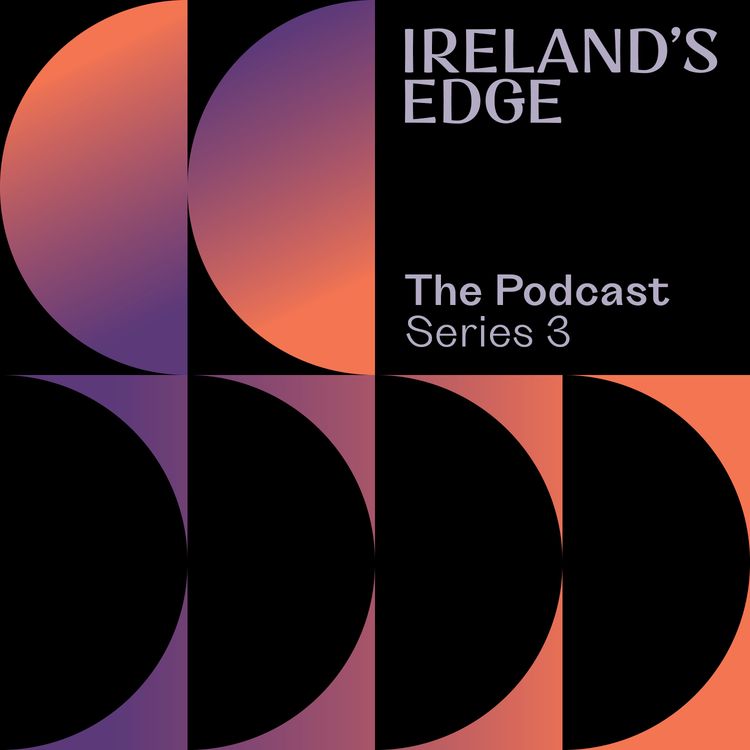
IRELAND'S EDGE
The People Have The Power: Fidaa Marouf, Kevin Baker + Dinny Galvin
On this episode, The People Have The Power.
While debates about social change often focus on Government policy, all across Ireland there are citizens and volunteers taking it upon themselves to create the change they want to see in their communities.
At Ireland’s Edge, Muireann Kelliher spoke to three such inspiring individuals to hear their stories and ask them how we can better harness the creativity and commitment of citizens in addressing our social problems . Fidaa Marouf came to Ireland from Syria five years ago and is now studying dentistry as a Quercus Active Citizen Scholar,at University College Cork; Kevin Baker was the Chairperson of the Dublin Cycling Campaign and Dinny Galvin who joined us earlier in this series is a local farmer from here in Kerry.
More episodes
View all episodes
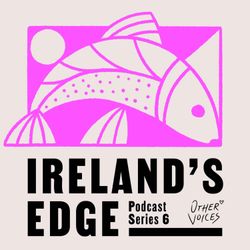
2. Bearing Witness: Voices and Testimonies from Gaza and Palestine
44:07||Season 6, Ep. 2As the horrors of the genocide in Palestine have unfolded, the reaction from policy-makers and the international community has not matched the will of ordinary people to respond. Humanitarian workers and activists have gone to extraordinary lengths to make a difference, but after decades of violence, many feel little hope for the prospects of peace and justice.As a country with a deep commitment to both peace and solidarity, how can we both bear witness to the suffering and further the cause of a just peace?In this week's episode of the podcast, we hear from Caoimhe Butterly, Human Rights Activist and Global Samud Flotilla Organiser, and Dr. Mohammed Abu Mughaisib, Deputy Medical Coordinator of Médecins Sans Frontières's operations in Palestine, both having devoted much of their lives to this cause as an activist and advocate and as a doctor and witness. We are deeply grateful to them for joining us in Dingle to share their experiences and perspectives with us.
1. Reporter at Large: A Conversation with Ed Caesar
44:47||Season 6, Ep. 1In our age of ever-shorter attention spans, long-form reporting has become an endangered art. But some stories require months and years of investigation and thought to be told properly.Ed Caesar is a Staff Writer for The New Yorker Magazine, whose recent feature essay, ‘The Irishman’, offered the most in-depth look yet into Daniel Kinahan and his criminal empire. He has previously been named Journalist of the Year by the Foreign Press Association of London for his coverage of the civil war in the Central African Republic, alongside other investigations of diamonds, money laundering, and sinking ships, while his most recent book The Moth and the Mountain was a Telegraph Sports Book of the Year.He speaks with Christopher Kissane about the process and importance of deep reporting and long-form storytelling.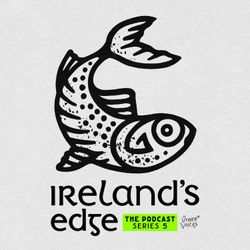
6. A Tangled Web: Disinformation, Riots, and the Rise of Extremism in Ireland
50:44||Season 5, Ep. 6Host Christopher Kissane is joined by Aoife Gallagher (Institute for Strategic Dialogue, author of Web of Lies) and journalist Una Mullally (The Irish Times) to unpack the rise of far-right extremism and online disinformation in Ireland. From viral conspiracy theories to foreign interference and the 2023 Dublin riots, they explore how social media is fueling hate—and what can be done about it. Recorded live at Ireland’s Edge in Dingle.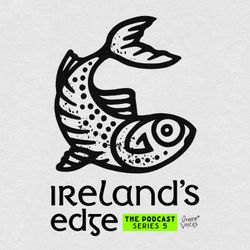
5. Parks and Recreation: How Do National Parks Fit Into the National Picture?
47:50||Season 5, Ep. 5Can Ireland’s newest national park protect the sea and the people who depend on it — or is conservation becoming a top-down photo op?Last year, the Irish government established Páirc Náisiúnta na Mara, Ciarraí (Kerry Marine National Park), a vast national park that includes many of West Kerry's most iconic locations—Mount Brandon, the Conor Pass, and a large stretch of ocean off the Kerry coast.While Ireland has been shamefully slow to protect its marine ecosystems, the creation of this park has raised concerns among fishing communities about the impact on their livelihoods and the lack of consultation in the planning process. So how do we strike a balance between conservation and community—and ensure this new national park is more than just a box-ticking photo op?Today, Chris is joined by three expert voices:Ella McSweeney, award-winning journalist and presenter of RTÉ’s Ear to the Ground. Her reporting for The Irish Times, The Guardian, and others has helped shape national conversations on farming, fishing, and the environment.Aodh Ó Domhnaill, CEO of the Irish Fish Producers Organisation and a veteran advocate for Ireland’s fishing industry, originally from Donegal.Olive Heffernan, award-winning marine science journalist and author of The High Seas: Ambition, Power and Greed on the Unclaimed Ocean.This episode was recorded live at Ireland’s Edge in Dingle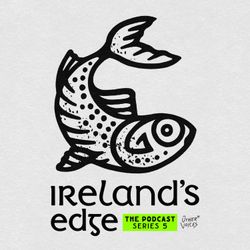
4. Paved Paradise? Rethinking Tourism and Housing in the West of Ireland
48:20||Season 5, Ep. 4How can we create a socially sustainable future for tourism, and provide places for people to live in their own communities? Tourism has become vital for many places in the west of Ireland, providing customers and opportunities for everything from hotels and restaurants to arts and crafts. The annual influx of visitors has revitalised towns all along the ‘Wild Atlantic Way, sustaining many small businesses in areas once blighted by immigration and poverty. But the success of tourism has also brought social pressures, most notably through a housing crisis exacerbated by the proliferation of second homes and holiday lets. For young people in particular, finding somewhere to live in their own area has become impossible, leading to a youth exodus that endangers the social future of many communities, and the cultural future of Gaelic areas, with the Irish language speakers increasingly priced out by holidaymakers. At the same time, declines in tourist numbers caused by high prices and a lack of accommodation are also sounding alarm bells for many local businesses.Today, three people from very different backgrounds share their stories and ideas with me: Peadar Ó Fionnáin is a local doctor in Dingle, where he also co-directs the annual arts festival Féile Na Bealtaine and is the local organiser for the Green Party, for whom he campaigns on housing and sustainability issues. Lynn Dyer is an activist in Cornwall, where she is director of the community food project Growing Links in Penzance, where she also directs the town's Street Food Project. And Didi Ronan is co-founder of NATIVE, a regenerative hospitality project in Ballydehob in West Cork, offering both a guest house and sustainably built cabins. She previously worked as a policy analyst for the OECD. They joined our regular host Chris Kissane in front of a live audience at Ireland's Edge in Dingle.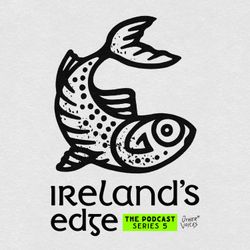
3. New (Dis)Order: How Can We Make Sense of Geopolitical Turmoil?
01:00:26||Season 5, Ep. 3From genocide to corruption, it is increasingly hard to escape the feeling that in geopolitics today, anything goes. Recent months have seen an extraordinary breakdown in the norms of international affairs. The controversial return of Donald Trump to the White House has repositioned America and damaged the Western Democratic Alliance that has dominated transatlantic affairs for a century. The impunity of the Israeli government's actions in Gaza and Lebanon, the Russian invasion of Ukraine, and the civil wars in Yemen and Sudan continue to horrify and shock the world. On this episode we hear from three expert voices who share their perspectives on what is to come. Carole Cadwalladr is an Orwell Prize-winning journalist whose work on big data and secret money behind the Brexit and Trump campaigns brought her international attention and a campaign of legal harassment from wealthy Brexiteers. Hannah McCarthy won an Irish Journalism Award for her foreign coverage, which has included reporting from Israel, Palestine, Lebanon, Syria and the US election campaign. And Donnacha Ó Beacháin is a professor of politics at Dublin City University. At Ireland's Edge in Dingle, they joined John Naughton, Senior Research Fellow at Cambridge University, and longtime friend of Ireland's Edge. This conversation took place in December last year, before the return of Donald Trump to the US presidency.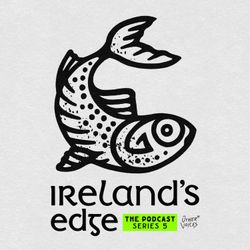
2. It's Not Easy Being Green - In conversation with Eamon Ryan
52:27||Season 5, Ep. 2On the day of Ireland's general election in December 2024, the longtime leader of the Green Party Eamon Ryan sat down with Chris Kissane at Ireland’s Edge. Marking the end of his political tenure after 25 years, and with his party’s prospects looking bleak, Eamon and Chris discussed why it’s not easy being green.Junior partners in two major coalition governments over the last 15 years, the Greens brought issues of climate change and sustainability to the centre of Irish political debate and Eamon's various ministerial portfolios have ranged from transport to energy to communications. But there has been a major political backlash against green politics both home and abroad despite a global environmental crisis that only continues to worsen.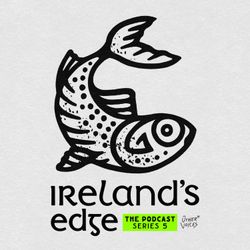
1. Stay Tuned!: RTÉ and the Future of Public Service Broadcasting with Kevin Bakhurst
46:58||Season 5, Ep. 1It has been a rough couple of years for Ireland's national broadcaster RTÉ, with a series of scandals damaging public trust and support for its funding in future. Revelations about secret payments to top presenters led to many refusing to pay their license fee, while politicians subjected executives to often aggressive grillings on live television. The man tasked with sorting out the mess is Director General Kevin Bakhurst, formerly RTÉ's head of news and previously a senior news editor at the BBC, where his work covered everything from the end of British rule in Hong Kong to the 9 /11 attacks in New York and Washington. Kevin joined Chris at Ireland's Edge in Dingle on election day last December to discuss the challenges he and his colleagues face in securing the future of our national broadcaster.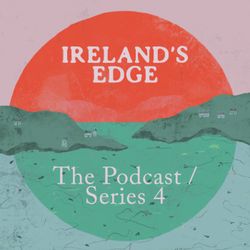
9. 'We Didn't Start the Fire': Addressing Climate Chaos
37:42||Season 4, Ep. 9On today’s episode, the generational divide over climate action.While most of the world agrees with the scientific fact that humans are dangerously altering the earth’s climate, we can’t agree what to do about it. Global powers and corporate giants quarrel over who should do what, while generations argue about the need for urgency. In a global crisis where the blame and the damage are unequally distributed, how do we create the consensus needed to act before it’s too late?At Ireland's Edge, in front of a live audience, Chris was joined by three fascinating guests who see climate change from different perspectives:Alex White is a Senior Counsel and is Director of the Institute for International & European Affairs. He was previously a TD and Senator, as well as a government minister in multiple departments.Martha Farrell is a founding member of the Maharees Conservation Association here in West Kerry, an award-winning volunteer community organisation set up to protect a vital tombolo on the Dingle peninsula. She is also a lecturer at Munster Technological University.And Caitlin Faye Maniti is a student at Maynooth University who was previously President of the Irish Second-Level Students’ Association. She contributes to Ireland’s National Youth Assembly, and was a co-author of a recent Unicef Ireland report on the impact of Climate Change on children.